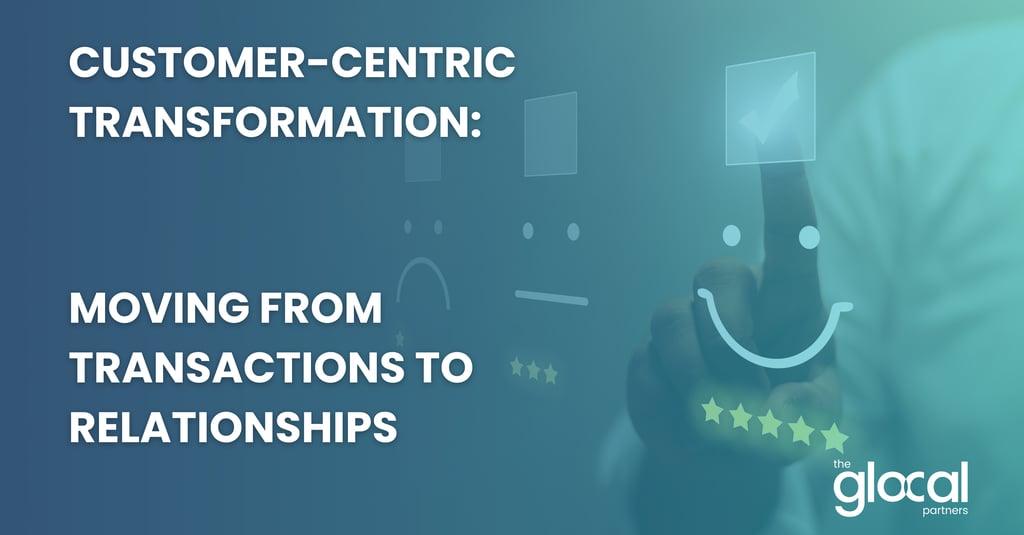Customer-Centric Transformation
Moving from Transactions to Relationships
The Glocal Partners
7/29/20252 min read


Customer-centric transformation represents a fundamental shift from product-focused to relationship-focused business models, requiring comprehensive organizational change across strategy, operations, culture, and technology dimensions.
Key Challenges in Customer-Centric Transformation:
Organizational Silos -- According to Forrester's Customer Experience Index (2023), 73% of organizations cite departmental silos as the primary barrier to customer-centricity, fragmenting customer journeys and preventing holistic relationship development.
Misaligned Incentive Systems -- The Harvard Business Review Customer Strategy Research (2022) reveals that 68% of companies maintain incentive structures rewarding transaction volume over relationship quality, undermining customer-centric behaviors.
Customer Insight Limitations -- McKinsey's Next-Generation Customer Insights Study (2023) found that only 23% of businesses possess the advanced analytics capabilities needed to develop deep customer understanding beyond basic segmentation.
Cultural Resistance -- Deloitte's Organizational Change Survey (2022) indicates that 77% of customer transformation initiatives fail to achieve objectives due to insufficient cultural evolution from product orientation to customer-centricity.
Strategic Solutions for Customer-Centric Transformation:
Implement cross-functional customer journey governance structures with shared metrics, joint accountability, and collaborative decision-making processes, as outlined in the Customer Experience Professionals Association's Journey Management Framework.
Redesign performance measurement and reward systems around customer lifetime value, relationship depth, and customer success metrics, following Bain & Company's Customer-Centric Compensation Model.
Develop integrated customer data platforms with unified profiles, predictive insights, and real-time activation capabilities, as recommended by Gartner's Customer Intelligence Maturity Model.
Create comprehensive cultural transformation programs addressing mindsets, behaviors, and capabilities across all organizational levels, utilizing PwC's Customer Culture Evolution methodology.
Key Takeaway:
According to the Aberdeen Group's Customer-Centricity Impact Study (2023), organizations successfully implementing comprehensive customer-centric transformations achieve 2.5x higher customer lifetime value, 60% greater cross-sell/upsell success, and 43% lower acquisition costs compared to transaction-focused counterparts, resulting in 23% higher profitability over a five-year period.
Book a Free Session with The Glocal Partners to discuss more details!
References:
Forrester Research. (2023). Customer Experience Index. https://www.forrester.com/research/cx-index
Harvard Business Review. (2022). Customer Strategy Research. https://hbr.org/2022/05/customer-strategy-research
McKinsey & Company. (2023). Next-Generation Customer Insights Study. https://www.mckinsey.com/business-functions/marketing-and-sales/our-insights/next-generation-customer-insights
Deloitte. (2022). Organizational Change Survey. https://www2.deloitte.com/us/en/insights/topics/organizational-change/organizational-change-survey.html
Aberdeen Group. (2023). Customer-Centricity Impact Study. https://www.aberdeen.com/research/customer-centricity-impact-study
theglocals@theglocalpartners.com
© 2026. All rights reserved.
This website is Powered by: The Glocal Partners LLC
